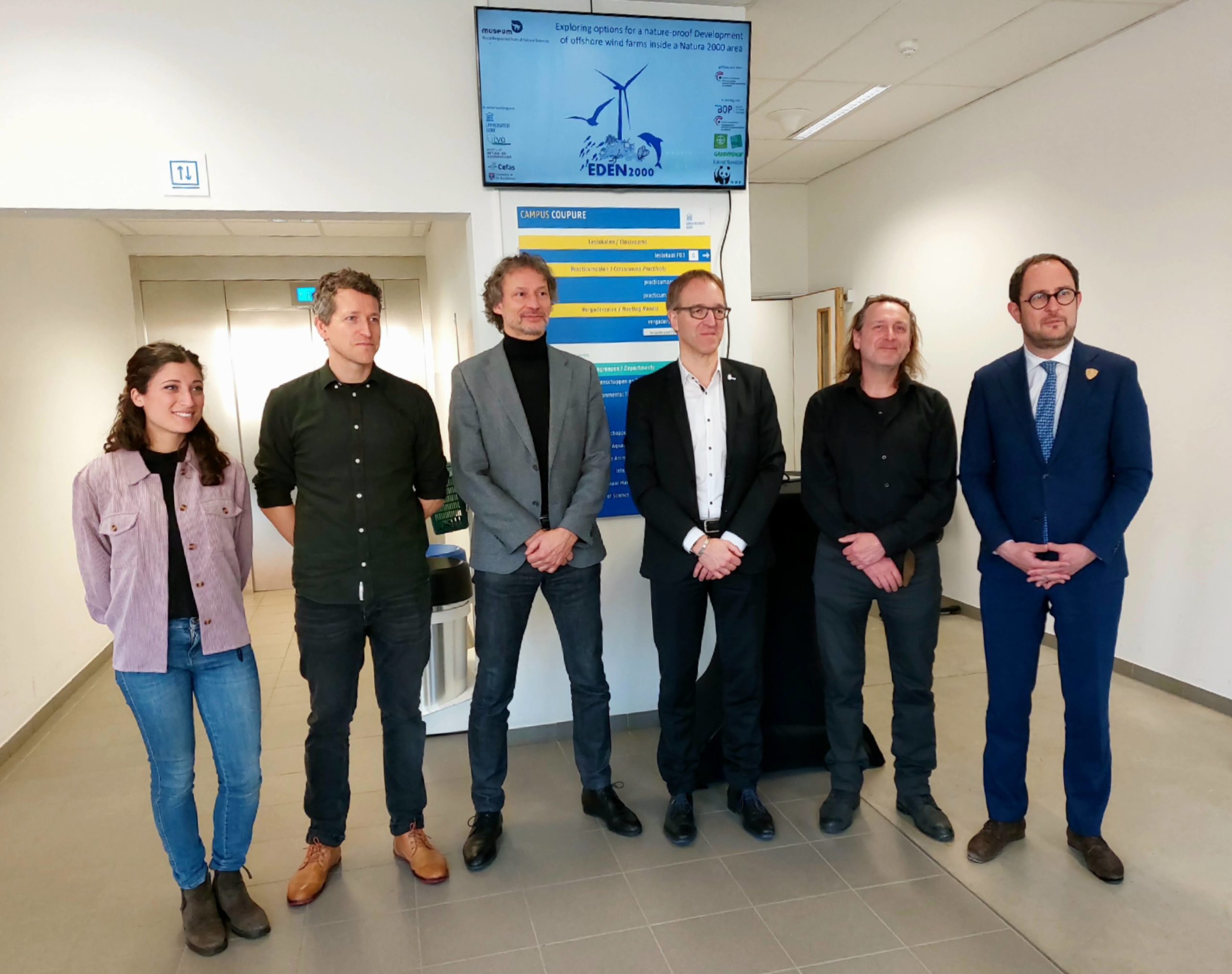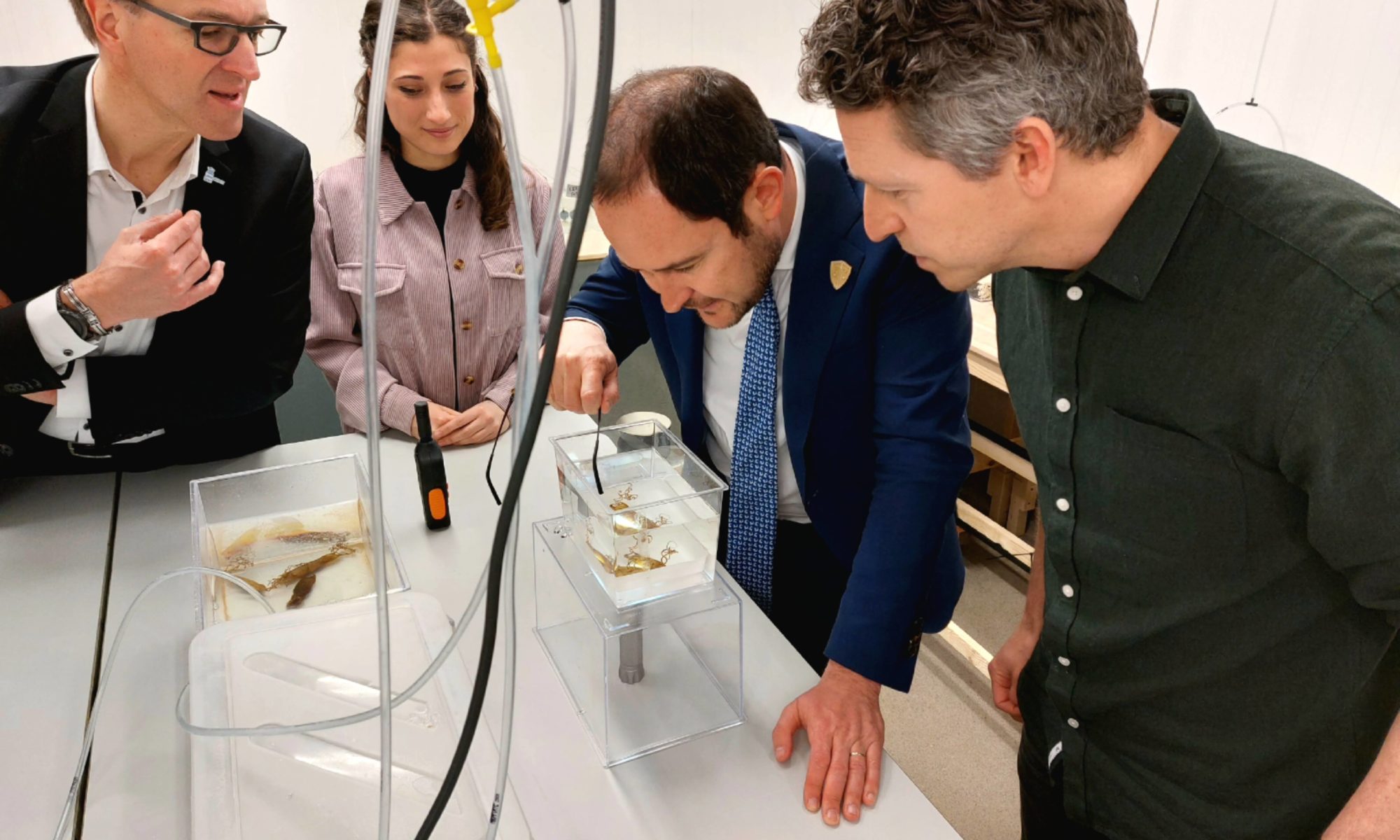EDEN2000 studies: Belgium leading the way in Europe
Wind farms at sea are important for our energy supply. The current wind turbines in the Belgian North Sea provide energy for 2 million Belgian households. With the Princess Elisabeth Zone, this share will be increased and all Belgian households will be able to enjoy green energy from the North Sea. In the Marine Spatial Plan 2020-2026, three additional zones have been designated for renewable energy. Two of them are located in or adjacent to a Natura 2000 area, in which the present biodiversity must be extra protected. It is crucial, also for the development of wind farms in these zones, to maintain this protection and even strengthen it where possible. The EDEN2000 project wants to provide an answer to the question of under what conditions we can achieve this through 25 separate studies that are currently underway. These studies will be included in a tender to be put on the market next year. On 22 March 2022, Deputy Prime Minister and Minister of the North Sea Vincent Van Quickenborne visited the UGent Faculty of Agriculture where one of these studies is being carried out. That lab research focuses on the effects of electromagnetic fields on the development of marine animals.
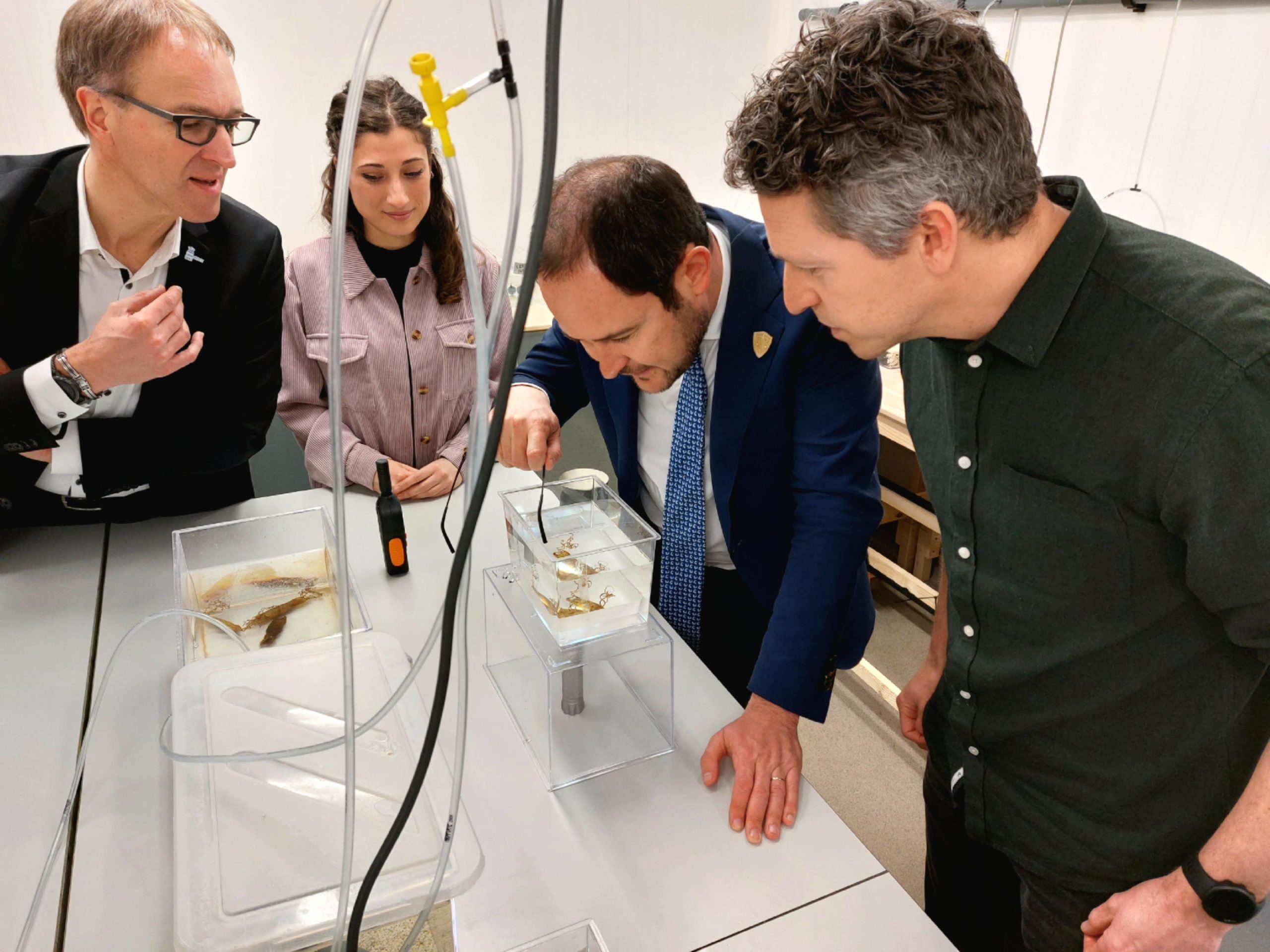
Wind farms at sea are important for our energy supply. The current wind turbines in the Belgian part of the North Sea provide green energy for 2 million Belgian households. This currently makes our country number six in the world in terms of offshore wind capacity. With the new Princess Elisabeth Zone, we are increasing this share and all Belgian households will be able to enjoy green North Sea energy.
The Belgian part of the North Sea already contains 37% nature reserve and our country will now also be the first European country to build wind farms in a nature reserve, more specifically in the Natura 2000 area ‘Vlaamse Banken’. This is an area in which the biodiversity must be extra protected. In particular, the shallow sandbanks and gravel beds form refuges for endangered species such as the Dead man’s fingers (Alcyonium digitatum) and the Mermaid’s glove (Haliclona oculata). Belgium wants to ensure that these nature reserves are not disturbed by the construction of wind turbines and to maintain and even strengthen their protection where possible.
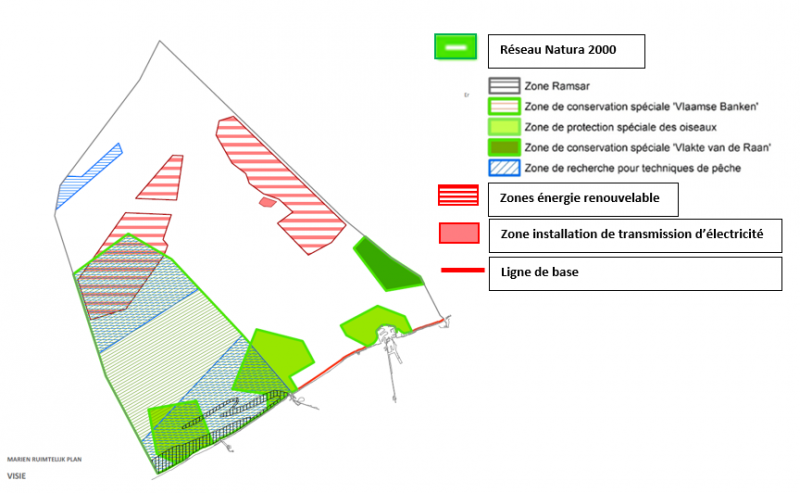
EDEN2000: research with many aspects
The construction of these wind farms not only requires an environmental permit, but also an additional Natura 2000 permit. This assesses whether or not a project at sea will have significant effects on the species and habitats to be protected.
The Belgian part of the North Sea has been studied closely for a long time. Through the Winmon.be project, the state of the marine environment in the first offshore wind farms has been monitored and a lot of knowledge has been acquired. However, there are still many gaps in the scientific knowledge about the impact of wind farms on nature in the North Sea. These gaps concern both knowledge on how to avoid negative impacts and how to enhance positive impacts.
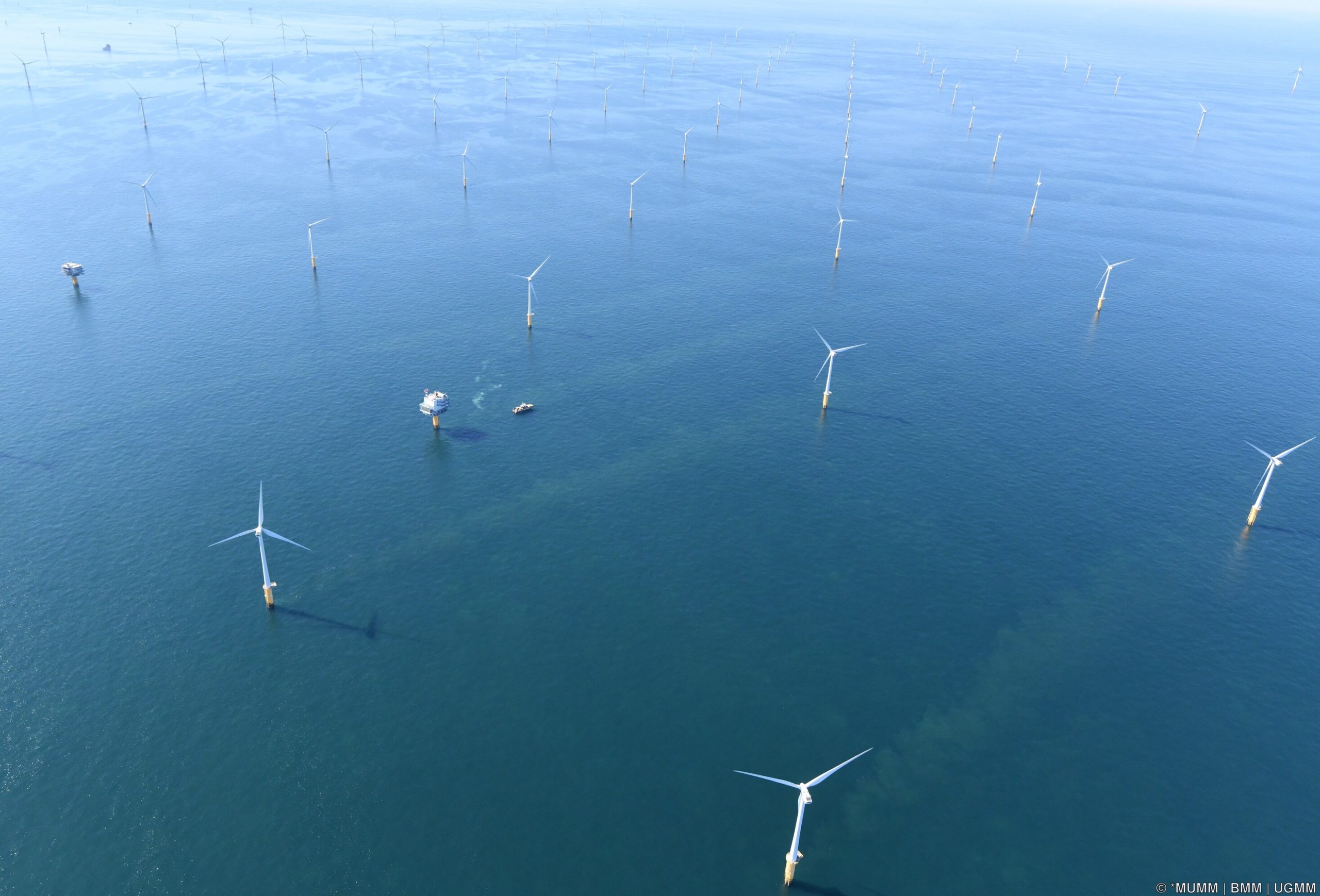
The EDEN2000 project (Exploring options for a nature-proof Development of offshore wind farms inside a Natura 2000 area) must therefore, via 25 separate studies that were started in 2019 and will be completed by the end of this year, provide an answer to the question of under what conditions we can realise the wind farms in nature reserves.
These include the mapping of gravel beds, the impact on habitat, the influence of wind turbines on seabirds and the impact of techniques and materials used on the biodiversity present.
On 22 March 2022, Deputy Prime Minister and Minister of the North Sea Vincent Van Quickenborne visited the UGent Faculty of Agriculture where researchers affiliated with the Royal Belgian Institute of Natural Sciences (RBINS) and UGent are conducting one of the studies of the EDEN2000 project. The lab research there focuses on the effects of electromagnetic fields on the development of marine animals such as the small spotted catshark (Scyliorhinus canicula), common cuttlefish (Sepia officinalis), European lobster (Homarus gammarus) and common squid (Loligo vulgaris). These species are expected to reproduce successfully again in the gravel beds once the wind farm is developed and bottom-disturbing fishing is eliminated.

Knowledge of the sensitivity of these species to electromagnetic fields, combined with detailed knowledge of the location of the valuable gravel beds, will be used to determine an ecologically sound positioning of cables in the wind farm.
On 18 March, the federal government decided to accelerate the transition to renewable energy with additional investments in offshore wind energy. Minister Van Quickenborne is backing this commitment and points out that the final report of the nature studies will be ready in early 2023.
Vincent Van Quickenborne, Deputy Prime Minister and Minister of the North Sea: “The development of the Princess Elisabeth Zone is important for the energy supply of our country. What makes the Belgian offshore so special is that we will be the first country to build wind turbines in a nature reserve. We can do this because we have already built up a lot of scientific expertise on the environmental impact of wind farms. We will therefore be able to determine the boundary conditions very precisely and strictly in the tender procedure. No fewer than 25 nature studies will be conducted for this purpose.”
Steven Degraer, marine ecologist Royal Belgian Institute of Natural Sciences: “Deploying a thorough scientific knowledge of the marine environment and how it is affected by human activities at sea is the guarantee for an ecologically responsible blue growth. This knowledge not only allows us to avoid negative effects in a very targeted way, but also to reinforce positive effects.”
More information
EDEN2000 is a cooperation between vice prime minister and minister of the North Sea Vincent Van Quickenborne, the Marine Environment Service of the FPS Public Health, the Royal Belgian Institute of Natural Sciences – OD Nature, 4Sea (an umbrella organisation of NGOs) and the Belgian Offshore Platform. The results of this scientific research will be included in the tender conditions for the construction of wind turbines.
- The EDEN2000-studies: Dutch – French
- The marine spatial plan: Dutch – French
- The appropriate assessment: Dutch – French
